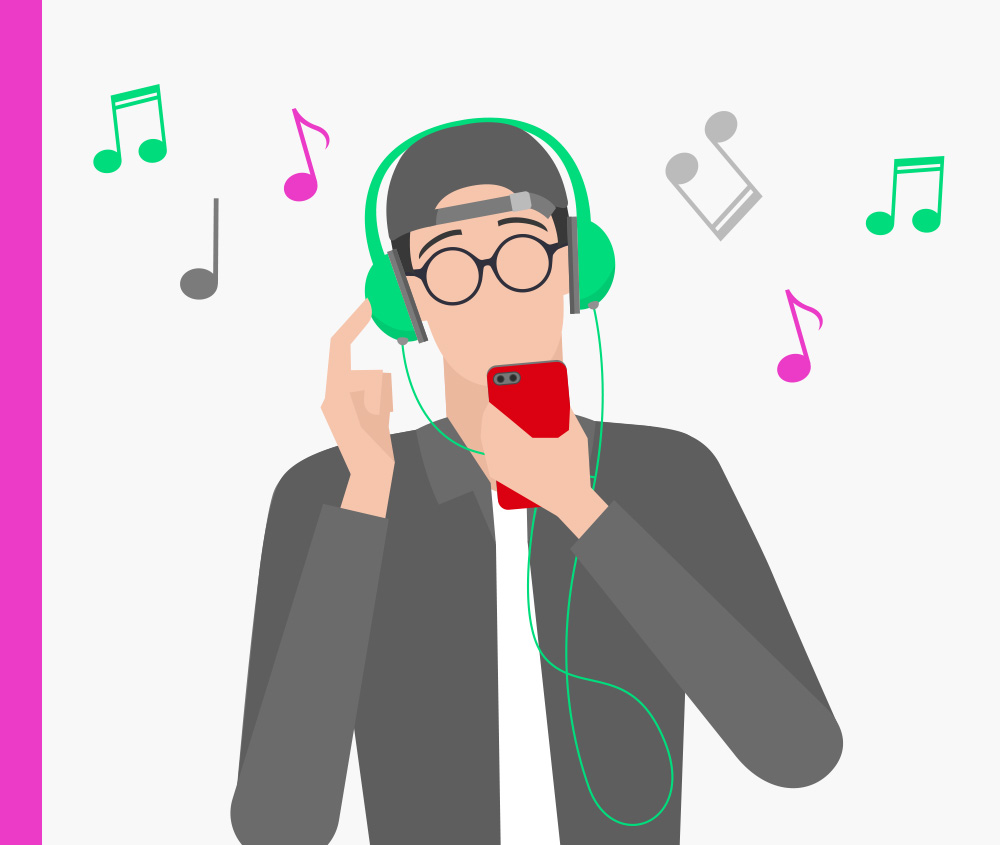Hearing is healing - music for the pandemic
Managing our mental wellbeing during this time is as important as managing our physical health. During the current pandemic, music can play an important role in improving your mood and combating stress.

Prolonged social distancing and an always-on home office routine during the pandemic could have an impact on our mental wellbeing. Besides developing a home workout routine, there’s something else we can do to help cure our blues – listening to music. The right music can massage our psyches in times of stress and lift our spirits while enriching our emotional connections with others and the world around us.
We have invited Mr Kingman Chung, Registered Music Therapist, to share his insights on how to manage our moods with the right grooves.
 |
Creating purpose-driven playlistsStudies have found that listening to the music you love will cause your brain’s pleasure-reward system to release more dopamine, a neurotransmitter that is essential to the normal functioning of the central nervous system. Music can also reduce stress by lowering cortisol levels, elicit responses promoting positive emotions, and improve our quality of life. There are many online music platforms that feature playlists designed by certified music therapists, but since musical tastes are highly subjective, it’s even better to create your own. |
Curate your own playlists in 7 easy steps
- Determine the desired outcome, how you want the music to make you feel.
- Name the playlist after the feeling you hope to evoke, i.e. Relax, Chill, Carefree, etc. To relieve pandemic-induced anxiety and effect positive mood changes, it’s a good idea to immerse yourself in a lighter, sunnier soundscape.
- Keep your playlist sonically consistent. Add only songs that harmonise with the emotional objective of the playlist.
- Listen to the playlist at specific times. Instead of listening non-stop, 20-minute doses of music enjoyment at different times of the day are usually enough.
- Create multiple playlists for different activities or times of the day. What you respond to aurally in the morning is usually different from what you need while working or before going to bed.
- Try to use better equipment, including recordings, headphones, speakers, etc. The quality of sound contributes to your enjoyment and feelings of wellbeing.
- Keep an open mind and explore new genres of music.
Learning/playing a musical instrumentMusical training not only boosts our cognitive skills but also relieves stress. Playing a musical instrument engages practically every area of the brain at once, including the visual, auditory and motor cortices. Besides, there’s nothing like a little music-making to facilitate a lot of family bonding. So get some simple musical instruments like maracas or small drums, or even make your own instruments at home, and start a family jam session! |
 |
 |
Pairing melodies with activitiesDifferent genres of music can be used as mood-enhancing soundtracks to various activities. With a suitable playlist, you are much more likely to be motivated to do what you have to. Here are a few things to consider when you’re choosing music. Do you like the music? Do you think a song’s tempo, melodic lines, instrumentations, etc., fit the activity you want to engage in? How do you feel about this music? |
| Sports | Upbeat, energetic and fast-tempo music can create a vibrant mood for your physical activities. |
| Yoga | Soft, calming music can help alleviate stress points in certain areas of the body during stretching. |
| Cooking | Dinner jazz, light pop, bossa nova can help you find your rhythm in the chopping, dicing and sautéing, and take your mind off all the hassles outside your kitchen. |
| Art | The sensory effects of music can evoke emotional nuances that awaken your creative instinct. Put on a tune and let music be the muse that leads it across the canvas. |
So start looking through your music library and put a smile on your ears and soul with some much-needed musical detox.
Mr. Kingman Chung,
Australian-registered music therapist, founder of International Music Therapy Centre & Hear I am Innovation and Technology Ltd, Chairman of Hong Kong Music Therapy Association.
